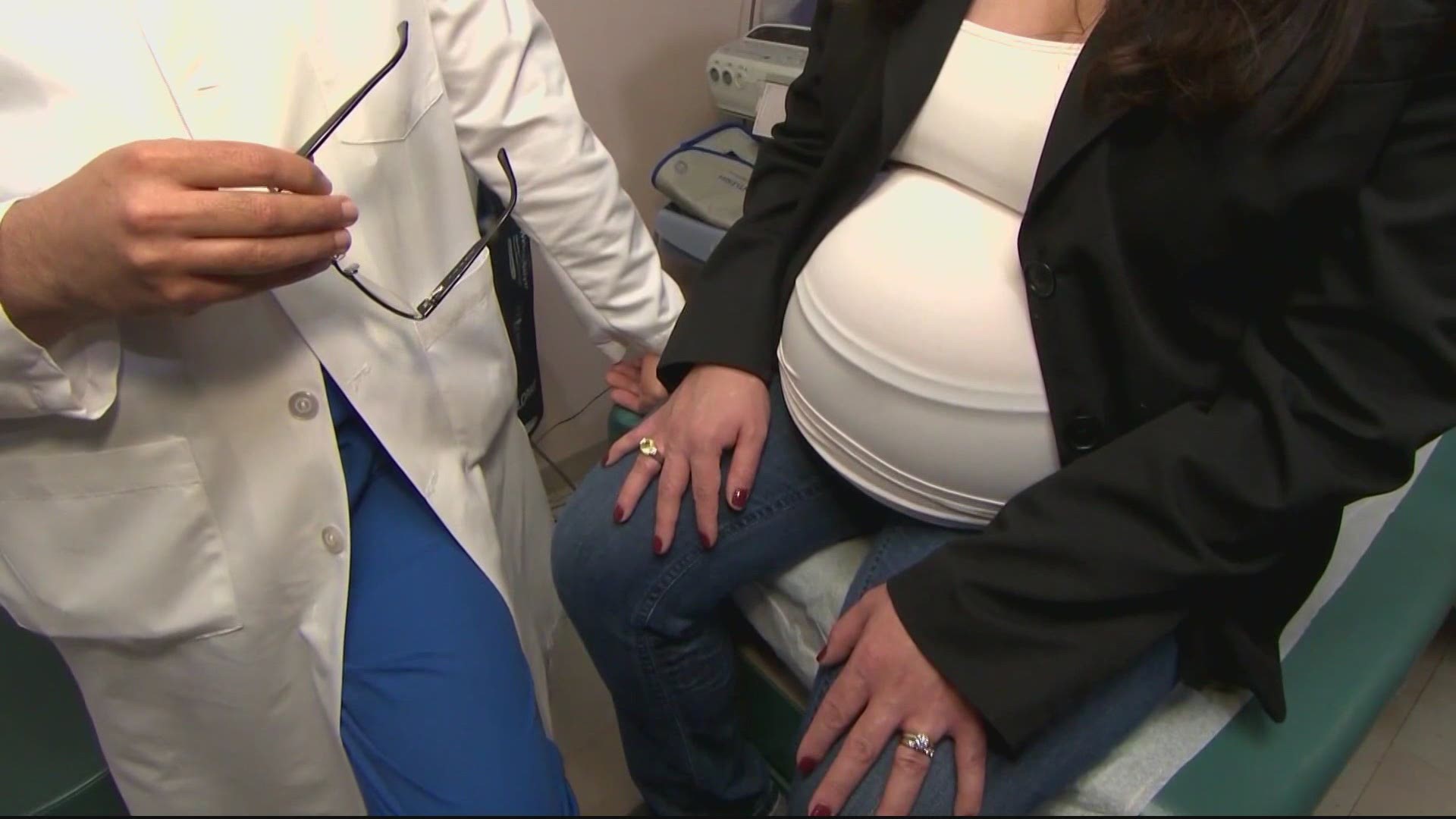WASHINGTON — So many people want to know when and how they’ll get the COVID-19 vaccine, but some are wondering if they should get it at all, particularly people who are pregnant.
Women who are pregnant have a higher risk of COVID-19 complications.
WUSA9 reached out to Dr. Laura Riley, Gynecologist-in-Chief at New York-Presbyterian/Weill Cornell Medical Center, for advice that might help someone make their decision.
QUESTION: What do pregnant people need to know about the current COVID-19 vaccines?
ANSWER: “The first thing that pregnant women just need to be aware of is that over the last 11 months of this pandemic we've learned that pregnant women who then become infected with COVID-19 have a higher risk of having further complications, such as needing an intensive care unit level of care, needing mechanical ventilation, and possibly even death,” Dr. Riley explained. “That becomes a clear issue when you're trying to figure out well, do I really want the vaccine?”
HAVE A QUESTION? TEXT (202) 895-5599 SO THAT OUR TEAM CAN WORK ON FINDING AN ANSWER.
Although pregnant women would likely rather avoid contracting the virus at all costs, the decision to get the vaccine may still be challenging.
“The clinical trials that have been done thus far with both the Moderna and the Pfizer vaccines did not include pregnant women intentionally in their trials and we also don't have the safety data that I think pregnant women obviously would want,” Dr. Riley shared.
QUESTION: So should pregnant women get the vaccine?
ANSWER: Dr. Riley explained you should consider your risk of getting the virus during the time that you are pregnant. “What's your risk of getting COVID-19? If you're a health care worker, and you're constantly exposed, that may be a much more concerning situation, than someone who is working from home.”
She also said to consider your underlying health conditions — such as diabetes or high blood pressure — which may also be good reasons to go for a COVID-19 vaccine.
“I think it really is an individual decision,” Dr. Riley said.
She also encourages people to learn as much as possible to make a well-informed decision; one place to start is by reaching out to a doctor or midwife and searching for online resources to weigh the pros and cons of making a decision regarding vaccination.
However, Dr. Riley affirms that those who are pregnant also have the right to feel confident about whatever decision they choose to make. “You don't need anybody's permission, you are perfectly capable of making that decision,” she said. “Some women already know what they want, because they know how high their risk is.”
QUESTION: What about people trying to become pregnant or those who are breastfeeding?
ANSWER: For people trying to get pregnant, Dr. Riley recommends trying to get the shot before, if possible. “Then you don't have to get into that, ‘Oh, now I'm pregnant. Should I get it? Should I not?’”
She adds that there is no concern for people who are currently breastfeeding. “We are really not concerned at all about the vaccine in that population.”

